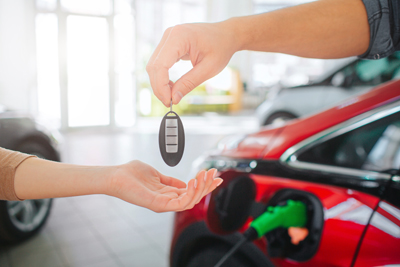A recent survey revealed a a cooling of consumer sentiment towards EVs in the last two years.
A recent global survey by S&P Global Mobility revealed high costs and technology concerns are the primary barriers preventing consumers from embracing EVs. This insight comes at a time when the auto industry is rapidly pivoting towards electrification.
The survey, encompassing responses from 7,500 individuals worldwide, found 48% perceive EV prices as prohibitively high despite understanding the inherent premium attached to these vehicles.
"Pricing is still very much the biggest barrier to electric vehicles," said Yanina Mills, a senior technical research analyst at S&P Global Mobility.
The survey also highlights a cooling of consumer sentiment towards EVs in the last two years, a trend Mills attributes to the natural fluctuations of an immature market segment. Despite improvements in EV range and the diversity of models available, less than half of the respondents believe EV technology is primed for mass market adoption. Only 42% are considering an EV for their next vehicle purchase, with 62% waiting for further technological advancements.
This hesitation marks a stark contrast to earlier attitudes. In 2019, only 58% of respondents were open to buying an EV, a figure that shot up to 86% in 2021 due to the influx of mainstream models and supportive policies. However, as of May 2023, the openness to purchase an EV has dropped to 67%, a 19-percentage point decrease from 2021.
Brian Rhodes, director of connected car and vehicle experience for S&P Global Mobility, cites rising interest rates, inventory shortages and changes in the U.S. tax-credit program as contributing factors to this shift. Additionally, concerns over the reliability of charging networks have also dampened enthusiasm.
Charging infrastructure remains a significant issue, with 46% of respondents worried about charging times and 44% about the availability of charging stations. Mills pointed out consumers are reluctant to delay charging more than what would typically take a lunch break. This underscores the need for a robust fast charger network and EVs capable of using such technology efficiently.
The survey also sheds light on the misconception regarding home charging. While widely believed to be the primary mode of charging, only 42% of EV owners typically charge their vehicles at home. This finding suggests a diverse charging behavior among EV users, spanning various locations.
In terms of range, the majority of respondents were content with an EV range below 300 miles, aligning with the capabilities of most EVs currently on the market. Mills, however, notes a persistent "what if..." factor that continues to make consumers hesitant.
Finally, the survey revealed consistent reasons for purchasing EVs: fuel savings (69%), environmental benefits (56%), and the driving experience (31%). Yet, the financial implications of owning an EV, especially in areas with high electricity costs, add complexity to the decision-making process.
"All-electric everything doesn't seem to be achievable for a lot of consumers," Mills said.










Abby Andrews